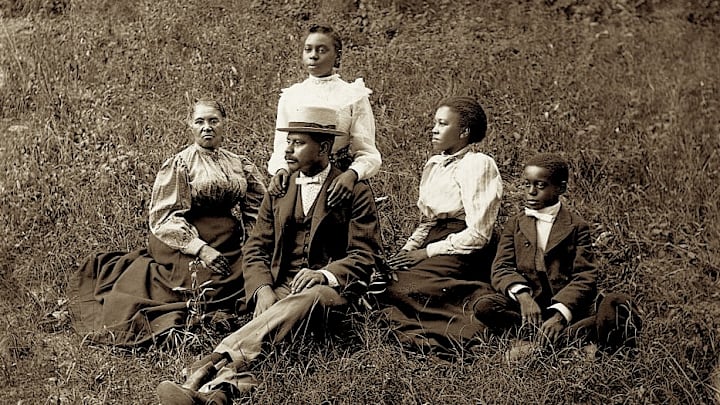The genealogy website Ancestry.com has digitized and gathered 38,000 newspaper articles, published from 1788 to 1867, containing details about more than 183,000 people once enslaved in the U.S. The “Articles of Enslavement” database aims to shed light on the written history of slavery and “help millions of descendants discover more about their families,” according to a company statement.
Genealogy can be logistically difficult for Black Americans due to the country’s history of chattel slavery and systemic racism. Enslavers routinely split up families and did not keep exhaustive family records. Many of the records that did exist are lost or illegible.
Disturbing Evidence
Ancestry’s data collection, including notices about auctions and fugitives, is searchable by place, date, the names of the enslaver and the enslaved individual, and the “recorded value” of the person.
Some of the articles make stark the commodification of human beings. A notice about an estate sale from a 1823 edition of the Charleston Daily Courier of South Carolina advertises “five valuable negroes,” including two men, ages 18 and 35, noting their skills in bricklaying and carpentry, as well as a 30-year-old woman and her “two children likely Girls,” 14 and 18. The article notes that a horse, some clothing, and a collection of books are purchasable in the same estate sale.
A notice published in the Hartford Courant in 1814 announced the “runaway” of an “indented apprentice of [a] tanning and curing business, 17 years of age, light complexion, light eyes.” The article offers a one-cent reward for his return and advises, “All persons are forbid harboring, trusting or employing him under penalty of law,” wording that was common in these types of notices.
Other articles publicize the capture of fugitives and state that they will be sold at a public auction if the “owner” does not step forward.
Some articles betray humanizing details, like a 1791 article in the Poughkeepsie Journal about a 33-year-old fugitive named Robert that mentions he took a fiddle with him.
“This collection is invaluable for providing descendants of enslaved individuals with insights into their ancestral histories and their forebears’ acts of resistance and resilience, despite the Emancipation Proclamation being largely ignored by enslavers, newspaper publishers, and lawmakers,” said Dr. Karcheik Sims-Alvarado, assistant professor of Africana studies at Morehouse College in Atlanta, with whom Ancestry consulted on the project. “By piecing together individual stories, researchers can construct a more detailed picture of the lived experiences of Black Americans, enriching our collective understanding of history.”
A Move Toward Inclusion
Ancestry, the largest for-profit genealogy company and a perpetual Father’s Day gift, has an uncomfortable history in incorporating African American lineages and realities. Author Kristen Green has noted that, in the past, researchers who have assembled family trees have found that the site automatically designated sets of parents as “spouses” and were prompted to correct young maternal ages, both of which downplay the harsh lives of enslaved people in the U.S. The “Lifestory” function, which provides some possible aspects of the person’s life based on era and place, à la an American Girl doll’s backstory, often included facets of life from which Black people were excluded, like participating in balls and parades.
In 2019, Ancestry produced a cringey video ad in which a white man tries convince a Black woman to flee northward with him to get married, insinuating it’s a historic likelihood.
Ancestry is publishing this set of historic data without its usual paywall, along with resources from experts to help users understand the context of the records. Take a look here.
Read More Stories About Black History:
